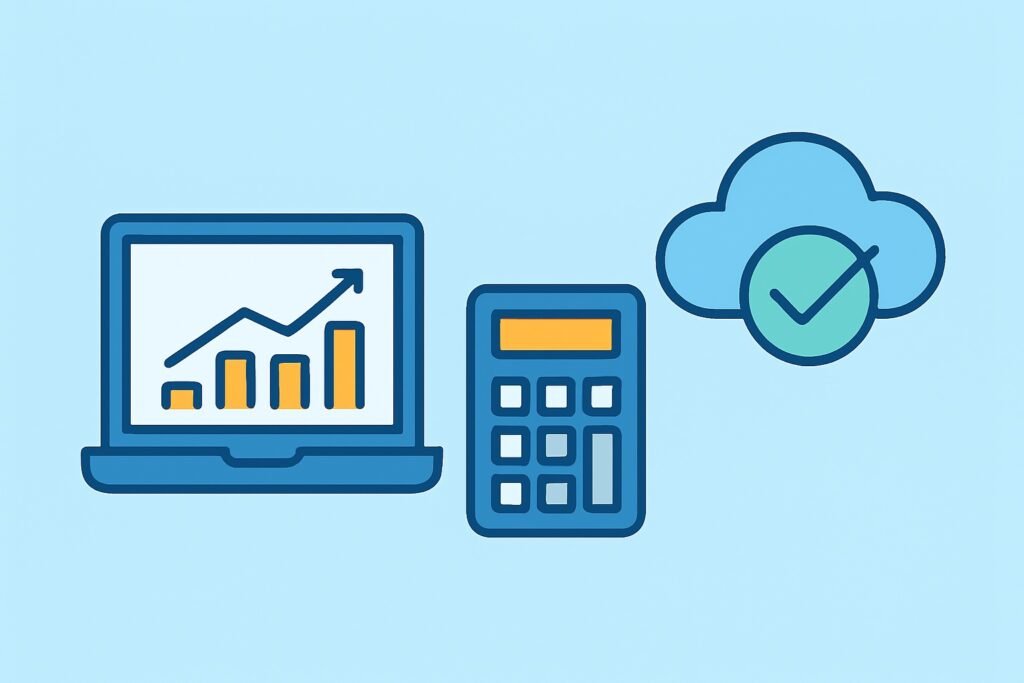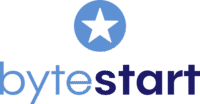
Small business accounting software has changed massively in recent years. Thankfully, the advent of cloud computing has consigned the days of buying bookkeeping software in a box and installing it on your computer to history.
These days, start-ups and sole traders can choose from a whole host of online accounting software packages. These tools help ease the pain of managing your finances and come packed with time-saving features.
However, with numerous web-based solutions available, how do you select the ideal system for your specific needs?
That’s where this guide comes in. If you follow the advice below and ask the right questions, you should be able to narrow down the field and choose the best software for your business.
Scroll down for comparison tables.
Why choosing the right tool matters
If you’re starting out as a sole trader, you have a duty to keep accurate and up-to-date records from day one. Taking a bit of time now to choose the right software will save you hassle and hours of admin later on. And will keep you on the right side of HMRC.
Many of today’s cloud accounting solutions are built specifically for small business owners. Unlike the bulky traditional platforms, monthly fees for sole trader online accounting are surprisingly affordable.
Because sole traders often manage everything themselves, it helps to have a single system that lets you raise invoices, check who owes you money, record expenses, and track profits – all from your mobile, tablet or desktop.
What to look for in accounting software
- Invoicing & expenses – Custom invoices, receipt uploads, mileage tracking.
- Bank feeds & reconciliation – Link your business bank account and match transactions easily.
- VAT & MTD compliance – If you are VAT-registered, you’ll need software that files returns directly to HMRC. Soon you will also need to comply with MTD for Income Tax.
- Self Assessment support – At a minimum, it should provide profit and loss reports and exportable summaries.
- Mobile access – Look for tools with a solid app for managing finances on the go.
- Automation – Auto-matching transactions, invoice reminders, tax forecasting.
- Scalability – Can you upgrade later to add payroll, multi-currency, or stock control?
- Support & integration – UK-based help and connections to your accountant or other apps.
The cheapest option isn’t always the best. And recommendations from friends, while well-meant, might not fit your business needs.
The tables below were compiled in June 2025. Be sure to check the most up-to-date prices and features on the providers’ websites, as they change frequently!
Paid accounting software – comparison table (2025)
| Software | Monthly Cost | VAT & MTD | Bank Feeds | Self Assessment | Mobile App | Notes |
|---|---|---|---|---|---|---|
| FreeAgent | £14–£29 | ✔ | ✔ | ✔ | ✔ | 30-day free trial, 10% off for life for ByteStart readers. |
| QuickBooks SE | £14–£34 | ✔ | ✔ | ✔ | ✔ | Great mobile interface |
| Xero Starter | £16 | ✔ | ✔ | ✔ (export only) | ✔ | Popular with accountants |
| Sage Start | £15 | ✔ | ✔ | ✔ | ✔ | Includes AI assistant |
| FreshBooks | ~£25 | ✔ | ✔ | ✔ (exports) | ✔ | Client-centric UX |
| Crunch | From £19.50 | ✔ | ✔ | ✔ (via team) | ✔ | Includes accounting help |
FreeAgent
£14–£29. Full SA103 filing, MTD-compliant VAT returns, and smart tax forecasting. Built specifically for UK sole traders and freelancers. Includes time tracking, expenses, and project profitability. Often free via Mettle or NatWest business accounts.
QuickBooks SE
£14–£34. Designed for the self-employed, with real-time tax estimates, mileage tracking, invoicing, and automated categorisation of expenses. Excellent mobile app with clean UX. Connects to HMRC for VAT and Self Assessment filing.
Xero Starter
£16. Cloud-based system popular with accountants. Includes bank feeds, VAT tools, and basic invoicing and reporting. Great scalability – can grow with your business and add payroll, inventory, and project tools later. SA data export only.
Sage Start
£15. Trusted UK brand with an intuitive dashboard, VAT and MTD filing, bank reconciliation, and expense tracking. Now includes Sage Copilot – an AI assistant for automated insights and reminders. Great for sole traders with simple needs.
FreshBooks
~£25. Ideal for creatives and service-based sole traders. Slick interface with time tracking, invoicing, expense logging, and client management. MTD-ready with exportable data for SA. Lacks native UK tax return filing, but has a great user experience.
Crunch
From £19.50. A hybrid platform offering both software and accountancy support. Includes invoicing, expenses, bank feeds, and VAT filing, with real accountants handling your returns. Flexible plans tailored to sole traders and contractors.
Free & freemium options for sole traders – 2025
| Software | Free Features | Limitations for Sole Traders |
|---|---|---|
| Zoho Books (Free) | Invoicing, expenses, bank feeds, MTD VAT | Only for revenue under £35k |
| Bokio | MTD VAT, invoicing, expenses | Lacks phone support, basic P&L |
| Wave | Invoicing and accounting | No UK VAT/MTD, US-centric |
| GnuCash / Adminsoft | Full desktop bookkeeping | Manual setup, no MTD or bank feeds |
| Ember (Starter) | Simple invoicing under £1k/month turnover | Very limited reporting |
| Coconut (free tier) | Designed for freelancers and sole traders | Best for very simple tax setups |
Zoho Books (Free)
Free plan includes invoicing, expense tracking, bank feeds, and full MTD VAT filing – not bad for a no-cost option. A good entry-level tool for sole traders just starting out.
Only available to businesses if your turnover is £35k. Some advanced features are paywalled.
Bokio
Swedish-built, UK-focused tool offering invoicing, MTD VAT, expense tracking, and auto-categorisation. Interfaces are clean and easy to navigate, especially for new users.
Lacks live customer support. P&L and Balance Sheet reporting are basic on the free tier.
Wave
Popular free tool for freelancers and tiny businesses. Includes invoicing, accounting, and expense tracking. Strong UX for US users, with some features also applicable to UK users.
No MTD VAT support or HMRC integration. Designed for North America, so UK tax compliance is limited.
GnuCash / Adminsoft
Old-school but powerful desktop accounting. Offers double-entry bookkeeping, invoicing, and asset tracking. Suitable for experienced users who prefer offline tools.
Requires manual setup and regular backups. No bank feeds or MTD support – not recommended for HMRC compliance.
Ember (Starter)
Simple and intuitive tool with automatic expense categorisation and invoicing, designed for micro businesses. The free tier supports up to £1,000 per month in turnover.
Reporting is minimal, and some core features (like tax filing) are locked behind paid plans.
Coconut (free tier)
Designed specifically for UK sole traders and freelancers. Tracks income, expenses, and tax estimates automatically. Great if you want simplicity and mobile-first design.
Best suited to very simple business setups. Free tier has transaction limits and no MTD support.
How to decide
- Start with a free trial or entry-level plan.
- Make sure it meets UK compliance, especially MTD and Self Assessment.
- Don’t overpay for features you don’t yet need.
- Think about how your business might grow – and whether the tool can scale with you.
Quick recommendations for sole traders
- Best all-rounder: FreeAgent (often free, full compliance, UK-focused) – we use it every day at ByteStart.
- Best tax automation: QuickBooks Self-Employed
- Most scalable: Xero Starter
- Best value for basics: Sage Start
- Freelancer favourite: FreshBooks
- Free but limited: Zoho (under £35k turnover), Bokio, Coconut
Final thoughts
There are more options than ever before for sole traders looking to ditch spreadsheets and get on top of their finances. Whether you go for a powerful paid tool like FreeAgent or test the waters with a free plan, the key is to pick something that fits your business workflow, not just what’s cheapest or most popular.
Take your time, try before you buy, and keep it simple. You can always upgrade later as your business grows.




